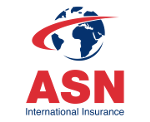The aim of the SSN was to create an efficient and uniform health system covering the entire population, irrespective of income or contributions, employment or pre-existing health conditions. The SSN provides free or low-cost health care to all residents and their families plus university students and retirees (including those from other EU countries) and emergency care to visitors, irrespective of their nationality.
In 1998 the SSN was separated from the INPS and funded directly by central government via the IRAP tax ( Imposta Regionale Sulle Attività Produttive), which is paid by employers on behalf of employees; the self-employed pay for themselves through their taxes. You don’t pay direct contributions and need only be a resident in Italy or a citizen of the EU to receive the same health benefits as an Italian.
If you qualify for health care under the SSN, your dependants receive the same benefits and are listed on your card. Dependants include your spouse (if she isn’t personally insured), children you support who are under the age of 16 (or under the age of 26 if they’re students or unable to work through illness or invalidity), and ascendants, descendants and relatives by marriage supported by you and living in the same household.
If you aren’t entitled to public health benefits through payment of Italian taxes or by receiving a state pension from another EU country, you must usually have private health insurance and must present proof of this when applying for a residence permit. If you’re a retired EU national planning to live permanently in Italy, you need form E121. EU citizens who retire before qualifying for a state pension can receive free health cover for two years by obtaining form E106 from their country’s social security department. If the temporary cover expires before you reach retirement age, you need to make voluntary social security contributions or take out private health insurance.
The SSN is largely under the control of regional governments and is administered by local health authorities ( Azienda di Sanità Locale/ASL – often referred to by their former name Unità Sanitaria Locale/USL). The SSN provides hospital accommodation and treatment (including tests, surgery and medication during hospitalisation), visits to family doctors (GPs), specialist medical assistance provided by paediatricians, obstetricians and other specialists, discounted medicines, laboratory services, appliances, ambulance services and free services at a local health unit ( consultorio).
Those who are registered with the SSN are entitled to free or subsidised medicines, a 75 per cent reduction on the cost of out-patient and after-care treatment, and some subsidised dental treatment. All in-patient treatment, i.e. treatment requiring hospitalisation is free under the national health service. Many medical expenses can be totally or partially deducted for tax purposes, including the cost of spectacles, hearing aids and visits to medical specialists, so you should retain all medical receipts.
The Italian health service places the emphasis on cure rather than prevention and treats
sickness rather than promoting good health. There’s little preventative medicine in Italy such as regular health checks. The public health service has limited resources for out-patient treatment, nursing and post-operative care, geriatric assistance, or terminal illnesses and psychiatric treatment. Inadequate treatment due to staff shortages and long waiting lists as a result of a lack of hospital facilities are frequent complaints made against Italy’s health service.
Many problems are related to crippling bureaucracy, mismanagement, general disorganisation and spiralling costs. Despite the huge advances in medicine and the progress in health care in Italy in the last few decades, the public health service is facing enormous problems. Health service reform is a matter of intense public debate in Italy and it’s likely that there will be major changes in the next decade.
This article is an extract from Living and Working in Italy from Survival Books.




